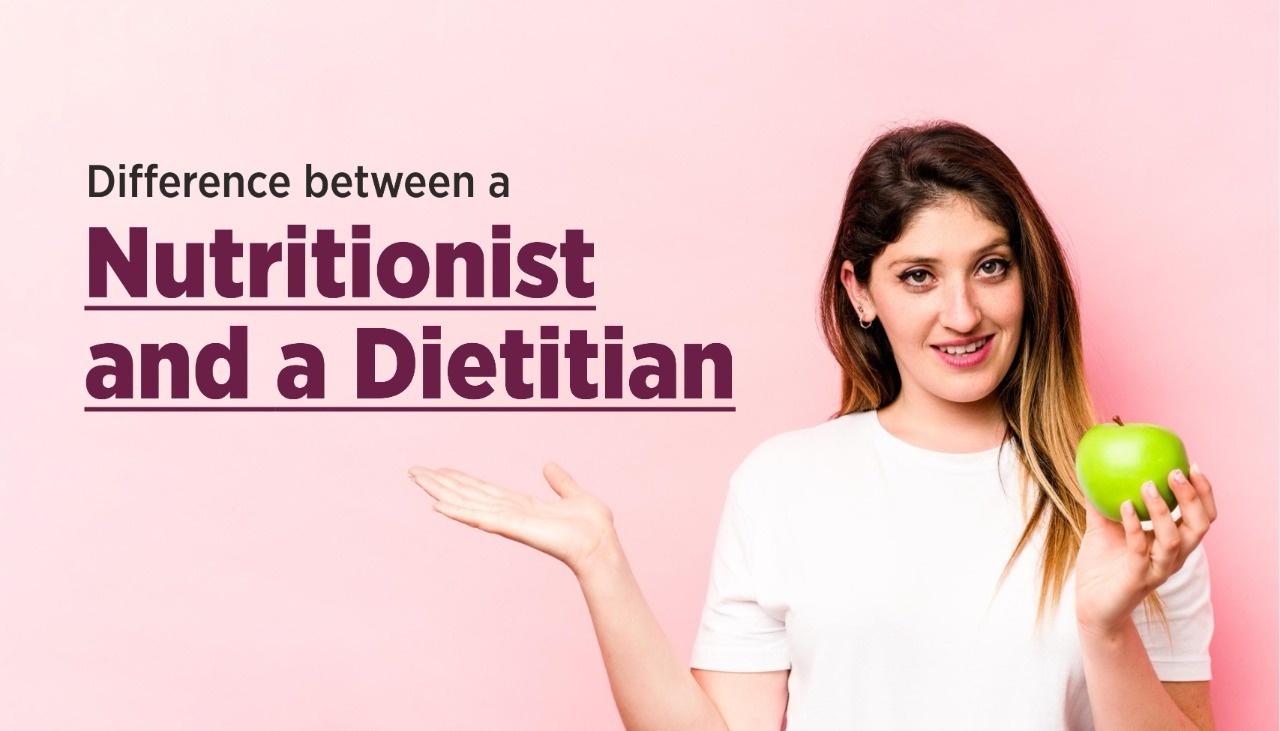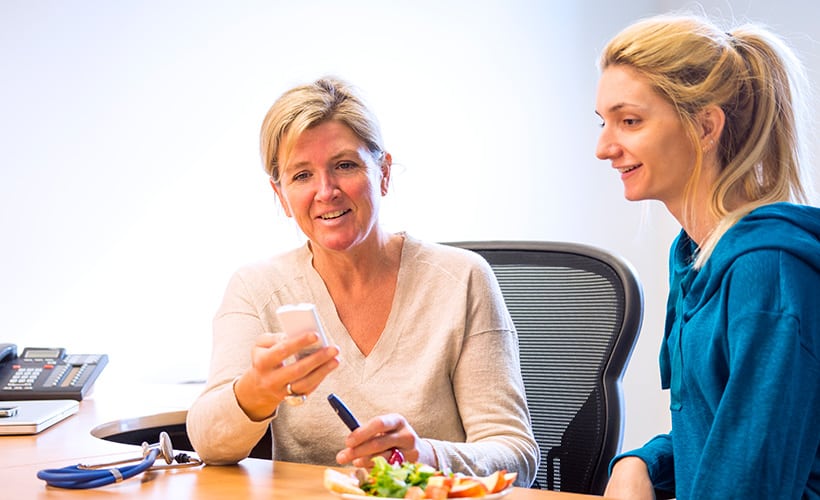All Categories
Featured
Table of Contents
-1
In the USA and many other countries, a dietitian is a board-certified food and nourishment expert. They are very informed in the field of nutrition and dietetics the science of food, nourishment, and their effect on human wellness. With considerable training, dietitians acquire the expertise to offer evidence-based medical nourishment therapy and nutritional therapy customized to meet a person's demands.
-1To make these credentials dietitians-to-be should first gain a bachelor's degree or equivalent credit histories from a certified program at a college or college. Normally, this needs an undergraduate science degree, consisting of training courses in biology, microbiology, natural and inorganic chemistry, biochemistry, makeup, and physiology, as well as even more specialized nourishment coursework.
Senior Diet Optimization
-1This allows them to evaluate intense demands, prioritizing life-threatening conditions. Inpatient and outpatient dietitians likewise supply nutrition education and learning to people with specialized requirements, such as those recently out of surgical procedure, in cancer therapy, or identified with chronic illnesses like diabetes mellitus or kidney condition. In the outpatient setup, they provide a lot more in-depth nutritional counseling working towards a nutrition-oriented goal.
-1Research dietitians commonly function in research medical facilities, organizations, or colleges. When dietitians have actually earned their qualifications and are working in the field, they can go on to specialize in a particular subcategory, such as pediatric medicines or sporting activities dietetics.
-1Others may function as health and nourishment specialists in media or as public speakers (Nutritionist Consultation). Dietitians are qualified to manage nutrition treatment throughout a period of intense and chronic conditions.
Diet Coaching – Subiaco
-1In several states, such as Alaska, Florida, Illinois, Maryland, Massachusetts, and Pennsylvania, RDs and CNSs are given the exact same state license, typically called a Certified Dietitian Nutritional Expert (LDN) permit. In states that don't manage making use of this term, any person with a rate of interest in diet plan or nutrition might call themselves a nutritional expert.
-1Because uncredentialed nutritionists normally do not have the competence and training for medical nutrition treatment and nourishment therapy, following their guidance might be considered dangerous (). Prior to getting in touch with a nutritional expert, you might intend to examine whether your state controls that might use this title. In the united state states that don't regulate the term, no levels or qualifications are called for to be a nutritional expert.

-1
In states that do mandate licensure, the CNS or RD credential might required. Those with CNS credentials are wellness professionals like nurses or doctors with sophisticated wellness levels that have looked for extra coursework, completed supervised method hours, and passed an examination looked after by the Board for Accreditation of Nutrition Specialists.
-1While a few of these techniques might have robust clinical support, others may not. Giving nutrition guidance without the proper expertise and training can be unsafe, especially when counseling those with health and wellness problems. If you are taking into consideration getting in touch with a nutritionist, you might want to ask if they are a CNS or have state licensure or qualification, or one more credential.
Postpartum Dietitian
-1Several states particularly regulate this term. Furthermore, nutritionists may go after a sophisticated CNS certification.
-1It can be challenging to help individuals make authentic, lasting adjustments in their lives. Both dietitians and nutritional experts provide a range of nutrition-based services to clients.
-1They should have finished some level of education in their area. They are also called for to have finished up to a year of supervised work, working within a led program at a health care center, catering company, or community body. Dietitians have far better expectations positioned on their capabilities and degree of professionalism and reliability.
-1This suggests that there is no body that supervises their credentials and no specifically stringent standards that nutritionists requirement to follow in order to be able to practice. Dietitians, on the other hand, are registered with nationally identified bodies, such as the Dietitians Organization of Australia. They need to abide by the National Expertise Requirements for Dietitians.
Nutritional Assessment (Shenton Park )

-1
However, you can practice as a nutritional expert without the same level of certification as a dietitian. Nutritionist programs can differ in size and high quality, with some as brief as 6 weeks and covering far much less material than a dietetics course. Depending upon your education supplier, you can acquire a considerable quantity of knowledge through studying an easy nutrition course; however it is essential to examine the program content before starting.
-1This can include attending sector seminars or reviewing sector publications. Nutritional experts, on the various other hand, normally make their credentials in order to supplement other qualifications and offer better advice to their customers. Nutritionists can acquire employment in a broad array of areas, consisting of public wellness recommendations, suggestions for individuals, and collaborating with private organisations.
-1Nutritional experts can work with sporting organisations, health clubs, institutions and advise media electrical outlets on fundamental terminology and correct use of terms. Dietitians can function in most of the exact same functions as nutritionists.
Certified Nutritionist – Subiaco
-1Dietitians commonly function with more clinically sensitive customers. Since of the high level of knowledge called for to provide services to these individuals, just certified dietitians are permitted to supply care.
-1In Australia there is a distinction between a dietitian and other dietary health suppliers including nutritionists. All dietitians are nutritional experts, yet nutritional experts without a dietetics qualification can not call themselves a dietitian. While there are resemblances between a dietitian and nutritionist there are differences in qualifications and guideline. The dietetic profession is regulated and fulfills rigorous criteria as established out by the National Alliance of Self Regulating Wellness Professions (NASRHP).
-1Dietitians with the Accredited Practising Dietitian (APD) credential dedicate to ongoing training and education throughout their professions. As a profession, nutritionists are not controlled in Australia under NASRHP or certified under a single regulative body.
Best Dietitian For Pregnancy ( Subiaco)
-1If you have a persistent health condition and a care plan from your General practitioner, you might be able to declare a Medicare discount when you see an APD. The main objective of people functioning in the career of dietetics is embodied in this declaration: The occupation of dietetics contributes to the promotion of health and the prevention and treatment of ailment by optimising the nourishment of populations, areas and individuals. Diet Planning.
Latest Posts
Affordable Functional Fitness Near Me – North Beach
Dynamic Gym Membership Near Me – Mount Claremont WA
Personalised Fitness Coaching – Perth